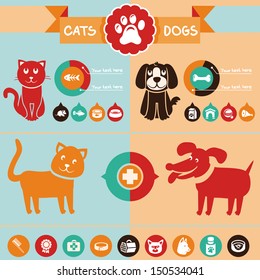Dogs in childcare get lots of exercise, socializing with various other canines and unique experiences. This can be specifically valuable for puppies and pets with behavior issues.
There are numerous lawful considerations you need to consider when starting a doggy day care service. These consist of the framework of your organization and conformity with federal government laws.
1. Canine Distemper
Canine distemper is spread through direct contact with the bodily fluids and waste of an infected dog, but it can likewise be transferred through common water and food bowls or with air-borne beads. This very contagious illness is most harmful for puppies, but it can impact canines of any type of age and is fatal for many if left without treatment.
Preliminary signs and symptoms of canine distemper usually resemble an acute rhinitis, consisting of dripping eyes and nose with watery or pus-like discharge. As the illness advances, a canine will develop fever, coughing, reduced cravings, throwing up and looseness of the bowels. The infection can likewise assault the nerve system, resulting in seizures, twitching and partial or complete paralysis.
Reliable daycares reduce exposure to infection by calling for inoculations, regular health examinations and comply with strict health methods. If your dog appears excessively worn out or hopping, a day of rest may aid him recoup, however you ought to avoid taking him back to daycare till these signs and symptoms improve.
2. Kennel Cough
Kennel cough, also called contagious canine tracheobronchitis or Bordetella, is an extremely contagious viral or bacterial condition that impacts the breathing tract. It's commonly moved via the exchange of saliva or air droplets that an ill canine exhales. Social pets go to greater danger for infection due to their frequent communication with each other, such as when they play, share food or water, smell one another or simply fulfill in a jampacked atmosphere like a canine park or daycare.
The most usual sign of kennel cough is a relentless and powerful cough that sounds like something embeded the throat or retching. Commonly, canines will divulge foamy white phlegm. If dog boarding facilities near me left without treatment, a dog can create pneumonia and go to major risk permanently.
A credible day care facility should have rigorous cleaning and hygiene methods, sterilize all toys, food and water bowls consistently, and be open regarding their vaccination plans. Maintaining your canine approximately day on their vaccinations, especially for bordetella and canine flu, will significantly decrease their chances of getting the disease.
3. Parvovirus
Canine parvovirus, or parvo, is a highly transmittable viral disease that can be fatal for pups and young adult dogs with bad immune systems. It's most generally spread out by direct contact with polluted dog feces-- which can take place when canines smell, lick, or taste infected feces-- and indirectly from infected people, objects, or atmospheres (like kennels, grooming areas and lawns). Pups and canines without full inoculation histories are particularly susceptible to parvo.
The infection is incredibly resistant, making it through in the setting for as much as nine years, and can quickly be transferred in between dogs by get in touch with through feces or on footwear, clothing, and bed linens contaminated with parvovirus. Otherwise treated quickly with IV fluids, electrolyte equilibrium, vomiting control drugs and antibiotics to stop secondary microbial infections, a dog will swiftly dehydrate and establish severe looseness of the bowels, which leads to shock and blood poisoning. Parvo is difficult to treat once a pet dog has come to be ill, but with ideal veterinary treatment, many young puppies do endure this disease.
4. Pooch Influenza
Pooch influenza virus is very contagious and spreads via direct call, sharing food and water bowls, licking or nuzzling other pet dogs, through airborne beads, and through polluted surface areas. Vaccination works in reducing the danger of infection and episodes.
Many impacted dogs develop a moderate respiratory system infection with a cough that lasts 1-3 weeks. They might additionally have nasal and ocular discharge, sneezing, and lethargy. Several of the most major instances result in pneumonia and a high fever.
If your canine shows any of these signs, do not bring them back to childcare until they are healthy. If your pet dog is revealing signs of extreme exhaustion or hopping, talk to your vet today and make sure they are on health supplements to aid build their immunity. A vet will certainly evaluate your canine for signs of the influenza by taking an example from the nose or throat, and blood tests can be done to verify.
